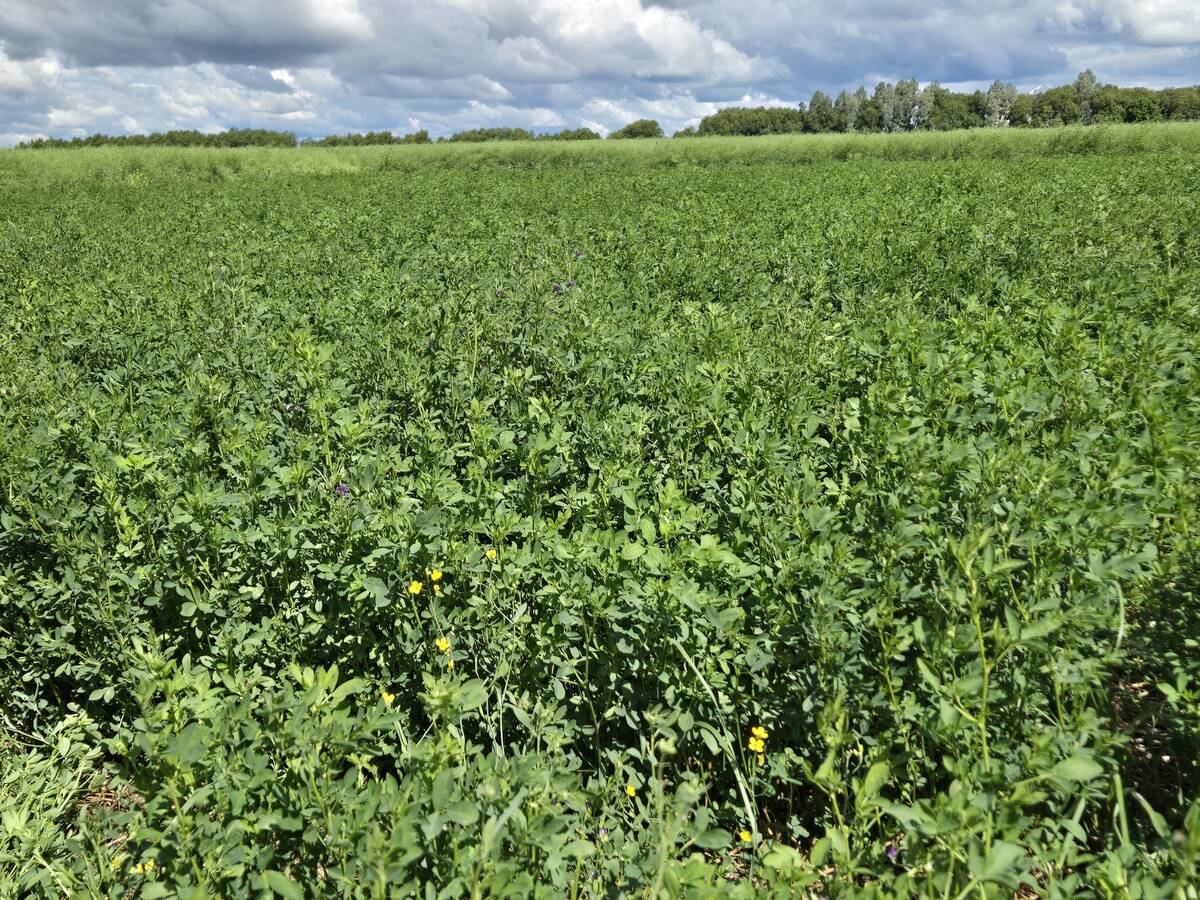Canadians rank the value of fresh water higher than any of the country’s natural resources, but a recent survey shows they don’t know much about this necessity of life.
The Royal Bank of Canada’s annual water attitudes survey of about 2,000 people wants to learn more about public attitudes toward water.
Conducted since 2009, this survey found people understand access to fresh drinking water is critical, but few know about potential threats to the supply because of climate change or its value to the Canadian economy and food security.
Read Also

Manitoba Parkland research station grapples with dry year
Drought conditions in northwestern Manitoba have forced researchers at the Parkland Crop Diversification Foundation to terminate some projects and reseed others.
“The problems seem to be moving faster than the public’s understanding of what those problems are,” said Bob Sandford, EPCOR chair for water and climate security at United Nations University.
“Sustaining the health of water cannot be sustained by legislation alone but through thousands of individual choices,” he said in an April 11 RBC sponsored webinar.
“Our prosperity is not defined by how much we earn but by our quality of life. Real and lasting wealth ends with water.”
A 2016 UN study reported that half the world’s workers are em-ployed in a water dependent economic sector, and it is estimated 36 percent of the world’s active workers are dependent on water in parts of their value chains.
Canadians tend to relate their national identity to natural re-sources, including water, said Robert Hallan, head of the Canadian Water and Wastewater Association.
“Canadians have always identified themselves with water,” he said.
“We see ourselves as the land of lakes and rivers and we are seeing a lot of excitement at the federal level in investment in the innovation in water treatment and finding water solutions and trying to put Canada out front as an international leader in water.”
However, Sandford said the federal government needs a secretary of state for water who understands that food security, climate stability and water quality are inseparable if it wants to get serious about water.
“You can’t have a national climate strategy without a national water strategy,” he said.
Climate change is acknowledged, but the survey found that is not well understood.
“Canadians have a limited idea of how the hydrologic cycle is changing in this country and globally,” he said.
“We still believe the fresh water we have available now will be available to the same extent and the same places as it exists now.”
Half of Canadians said forest fires, heat waves and severe thunderstorms are more frequent than 10 years ago.
The Alberta floods of 2013, the Assiniboine flood of 2014, extreme drought on the Prairies in 2015 and the forest fires at Fort McMurray, Alta., last year are all linked to climate change.
Conservation is somewhat understood, but more Canadians are likely to worry about not wasting energy because of the associated costs.
Eric Whan, director of GlobeScan, which conducted the survey, said Canadians personally feel they are making reasonable efforts to conserve and protect fresh water, but they are not sure about anyone else.
A majority of those polled said water is a human right.
Most Canadians do not see water as a commodity that should be sold. Seven out of 10 think they pay enough.
Hallan said water pricing is coming in some communities, and it is assumed people would be more careful if they have to pay moored.
Water is a right, but people have to recognize the price of treatment and delivery.
Canadians say the drinking water infrastructure is a high priority for government funding. They agree that commercial enterprises should pay the full cost of water but are less likely to agree to higher charges at the household level.
Canadians anticipate that water issues and infrastructure repairs are going to become more urgent in 10 years time, and no one believes the problems will be lessened in the future.
Sandford said they prefer that the government handle the water supply as a public service. They do not want it to go into private hands, and they do not want to pay the equivalent of bottled water prices.
New economic values should be attached to water and land. The value of having water on a land site and ecological goods and services provided by wetlands should be recognized. Investment has to be shifted to upland watersheds so nature can manage the water system, said Sandford.

















